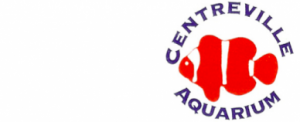
Summer is finally here and that means many of you will be flocking to the beach. Don’t forget to invest in some automatic feeders for your pond or fish tanks, or just pick up a new treat for your corals. With the humidity, thunderstorms will be happening more often, meaning you are at risk of losing power. Invest in something that can save your fish! With ponds come mosquitoes, and have we got an easy solution for you! And finally, in honor of father’s day, we’ve chosen a Fish of the Month whose male cares for the eggs.
 This Eheim digital feeder is battery operated. It contains an integrated fan and ventilation system so that your food stays dry, and can be programmed to feed your fish up to 8 times a day. This Eheim digital feeder is battery operated. It contains an integrated fan and ventilation system so that your food stays dry, and can be programmed to feed your fish up to 8 times a day. |
 If you are travelling for a weekend, invest in a Tetra Gel feeder block for your pond or aquarium. These nutritious feeder blocks have a slow release formula that wont cloud your water. If you are travelling for a weekend, invest in a Tetra Gel feeder block for your pond or aquarium. These nutritious feeder blocks have a slow release formula that wont cloud your water. |
 It’s thunderstorm season again. With the threat of power outages, buy yourself some peace of mind with a battery powered air pump. Get one early – We sell out of these quickly after a storm. It’s thunderstorm season again. With the threat of power outages, buy yourself some peace of mind with a battery powered air pump. Get one early – We sell out of these quickly after a storm. |
 If you’re like many pond owners, each summer your yard becomes overrun with mosquitoes. One of the most efficient, and natural ways to stop this infestation is to add Mosquitofish, or gambezi, to your pond. These fish are native to the North American continent and are easy to breed. They will feast on mosquito larvae and can consume almost twice their own body weight in larvae in a single day, ridding your pond of the pests. If you’re like many pond owners, each summer your yard becomes overrun with mosquitoes. One of the most efficient, and natural ways to stop this infestation is to add Mosquitofish, or gambezi, to your pond. These fish are native to the North American continent and are easy to breed. They will feast on mosquito larvae and can consume almost twice their own body weight in larvae in a single day, ridding your pond of the pests. |
 One of the most trusted names in fish, Hikari, has come out with two new foods specifically designed with coral in mind. Coralific Delite is ideal for target feeding corals, and its unique design provides complete nutrition without clouding your water. The frozen Coral Gumbo includes krill, rotifers, sea scallop, nori algae, as well as several much needed nutrients, such as carotene and folic acid. One of the most trusted names in fish, Hikari, has come out with two new foods specifically designed with coral in mind. Coralific Delite is ideal for target feeding corals, and its unique design provides complete nutrition without clouding your water. The frozen Coral Gumbo includes krill, rotifers, sea scallop, nori algae, as well as several much needed nutrients, such as carotene and folic acid. |

One of the most unique fish to help clean your aquarium is the Whiptail Cat. These fish are ideal for peaceful community tanks, including Discus aquariums, as they are never aggressive. Unlike some of their relatives, Whiptail Cats do not eat or damage plants. Instead, they consume black beard algae. It is possible to breed Whiptail Cats in the home aquarium. Females lay eggs in protected areas, such as in PVC tubes, but it is the males who assume the responsibility of caring for the eggs.
Posted in
Newsletter and tagged
aquarium,
Aquarium store,
catfish,
centreville,
Chantilly,
DMV,
Fairfax,
freshwater aquarium,
LFS,
mosquito control,
northern Virginia,
NOVA,
pond,
reef,
saltwater aquarium fish. Bookmark the
permalink.
RSS feed for this post.
Both comments and trackbacks are currently closed.









You must be logged in to post a comment.